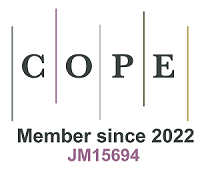fig4

Figure 4. NIPD technologies applicable to proband-free RHDO haplotyping phasing. A: Schematic depicting the workflow carried out for microfluidics-based linked-read sequencing (using the 10x Genomics technology) which has been employed for proband-free RHDO. High molecular weight (Mr) DNA is combined with beads containing uniquely barcoded primers as well as all required polymerase chain reaction (PCR) reagents. Several PCR reactions are carried out along the length of the high Mr DNA fragment, introducing a unique barcode into each PCR product. The DNA is sheared, and short-read next-generation sequencing (NGS) carried out. Reads are aligned to the reference human genome and PCR duplicates are excluded from the analysis. Haplotype phasing is carried out by assigning informative single nucleotide polymorphisms (SNPs) and the variant of interest to haplotype blocks of high- or low-risk based on the premise that reads with the same barcode originated from the same fragment of high Mr DNA. RHDO is then carried out on the cell-free DNA (cfDNA) as previously described [Figure 3]. B: Schematic depicting the workflow carried out for targeted locus amplification (TLA), which has been employed for proband-free RHDO. Nuclear genetic material in close proximity, typically intrachromosomal, is crosslinked and then fragmented. DNA fragments are re-ligated in a random manner and circularised such that informative SNPs from closely associated genomic regions are physically linked. De-crosslinking and inverse PCR are carried out in preparation for either short- or long-read NGS. Reads with > 1 informative SNPs are retained, and SNP linkage analysis is performed to generate haplotype blocks used for haplotype phasing of the high- and low-risk alleles.





